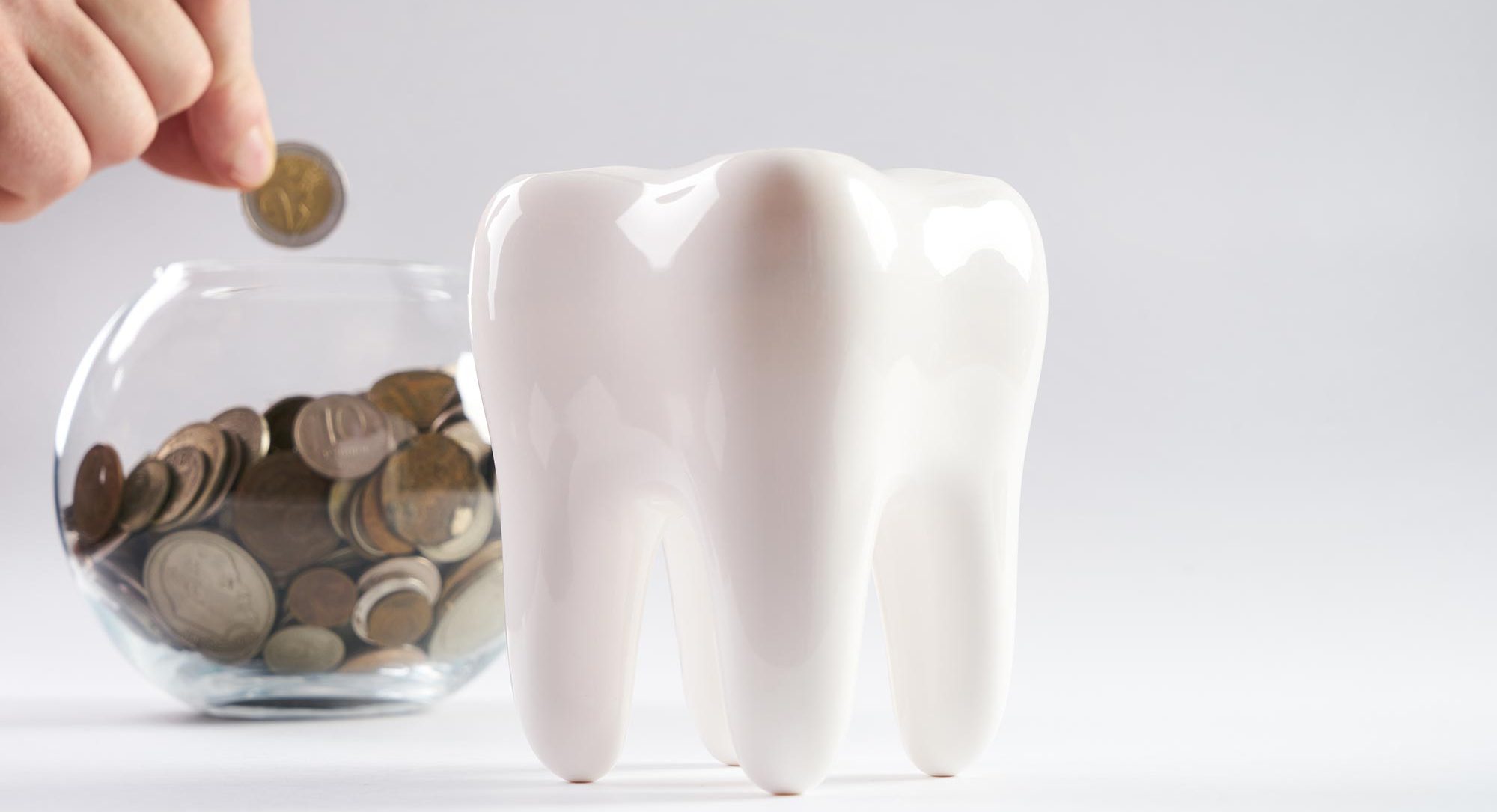 As the coronavirus causes businesses to start shutting down across the UK, we find out what the financial implications are for dentistry.
As the coronavirus causes businesses to start shutting down across the UK, we find out what the financial implications are for dentistry.
This week the UK government announced significant new measures following the coronavirus outbreak:
- Avoid social gatherings with friends and family
- Avoid non-essential travel and work from home where possible
- Cancel all unnecessary visits to care homes
- Only use the NHS where really needed, and get advice from the website where possible
- Those with the most serious health conditions should self-isolate for 12 weeks
- Anybody living in a house with somebody who has a persistent cough or fever should stay at home for 14 days
- Schools to close across the UK from Friday.
Companies across all industries are now starting to feel the pinch as more people self isolate.
The Bank of England cut its base rate from 0.75% to 0.1% temporarily today (19 March). This was to combat the ‘economic shock’ from the virus. And the government announced further financial plans on Tuesday (17 March) to help during the crisis, including:
- Mortgage holidays for those in financial difficulty
- £330bn in loans
- A further £20bn to protect businesses facing losses as a result of the virus
- A business rates holiday for all firms in the hospitality sector
- Grants of between £10,000 and £25,000 for small business.
How will it impact associates?
Currently the advice from the government is to work at home where possible, but there have been no blanket bans.
With self-isolation causing a downturn in the number of patients coming through the door, many associates are worrying about their future at the practice. Sarah Buxton from FTA Law explains the law and where dental practices and dental associates currently stand.
- What if a staff member has symptoms? – if employees have a ‘new, continuous’ cough or high temperature, they should self-isolate for seven days. Their travel history and contact with possible carriers is no longer relevant
- What if someone is in quarantine or is self-isolating? – if a medical professional or NHS 111 tells a staff member to self-isolate, the practice should treat them as if they are on sick leave. It has been confirmed employees are entitled to Statutory Sick Pay. This will take effect from the first day of absence. However, if an employee is not sick but you ask them not to come into work, you should pay them their normal pay. Employers with fewer than 250 employees will be eligible to reclaim two weeks’ SSP for each employee affected by COVID-19
- What if an employee wants to return to work during self-isolation? – if an employee has been told to self-isolate they should not be allowed to return to work until their self-isolation period has ended
- What if a staff member has coronavirus? – they should follow medical advice and standard sickness procedures should be followed. Staff should contact you and update them on when they will be able to return. They will receive Statutory Sick Pay or Contractual Sick Pay if the contracts provide this
- What if someone attends the premises and has coronavirus? – you should contact your local Public Health England. They will identify people who have been in contact with the infected person, carry out a risk assessment and advise on any further action
- What if a staff member needs to care for a dependant? – if a dependent has been asked to self-isolate, the staff member will have also been given the same instruction and will follow the advice above. However, if this is due to school closures and being unable to find alternative care, you can treat this as time off for dependants. You may also allow them to take this time as annual leave
- What if a staff member is refusing to come to work? – if there is no reason for the staff member to self-isolate, then you should attempt to alleviate their fears. And, if able, you could attempt to offer flexible working or allow them to take holiday or unpaid leave with agreement
- If the business has to close, what do we do about staff? – unless the contracts allow or it is agreed otherwise, you should pay them their normal pay for this period. If your contracts allow, you are able to lay your employees off. Your employees will be entitled to guarantee pay in these circumstances which is currently £29 per day. If you do not close but the need for staff reduces, you can place them on short time working. They will only receive pay for those hours worked.
Please note that the guidance on this area is subject to change and it is advisable to keep up to date with changes to the law. If a situation does occur you should make contact with Public Health England and follow the advice given by them.
For further details contact Sarah Buxton, FTA Law on 0330 088 2275.
How will it impact dental practice owners?
From staff calling in sick to patients not attending their appointments, the impact the coronavirus will have will vary between practices. The immediate problem is cash flow as patient demand slows down and less income comes into the practice.
The advice for dental practices at the moment is to continue opening, with added precautions. As the position changes, chief dental officers across all home nations are giving their own advice on when practices should stay open and the procedures to follow.
‘Any business who needs access to cash to pay their rent, their salaries, suppliers or purchase stock will be able to access a government-backed loan or credit on attractive terms,’ Chancellor Rishi Sunak said in a press conference on Tuesday (17 March).
‘If demand is greater than the initial £330bn I’m making available today, I will go further and provide as much capacity as required. I said whatever it takes, and I meant it.’
Many dental practice principals are turning to their insurance companies to see how they can help. Particularly in the event of a forced closure through a lockdown situation. Richard McEwen, managing director at Dental Insurance Services, says the answer isn’t always clearcut.
‘There are two main areas of questions we receive,’ Richard says.
‘We provide an Overheads Expense Insurance Scheme, which provides benefits to meet the ongoing expenses through illness or injury. Subject to the full terms and conditions, this policy would of course therefore react if the policyholder themselves were signed off as sick (due to Covid 19 or any other condition), but not in the event of forced closure.

‘A surgery/practice insurance policy may provide a more positive outcome. Apart from cover for buildings, contents, public liability and employers liability. Within most policies of this type will be a business interruption section as an optional benefit. This may provide benefits based on loss of profits or increased cost of working.
‘More traditionally, this optional extra protects the business against property damage. So if you had to close your business due to flooding for example, it would provide benefits to help get your practice back up and running.
‘However, business interruption cover sometimes includes a couple of clauses that could assist given the current situation.
‘Firstly, some provide cover for forced closure arising from “infectious diseases”. There is no definitive answer as, naturally, insurers take different underwriting approaches.
‘For example, some will define the specified diseases that could give rise to a claim. In this case the insurance is unlikely to cover Covid 19 given that it is such a recent development.
‘Other insurers take a wider view without defining specific diseases, in which case it is possible the policy will react.
‘Finally, some may adopt a “notifiable disease” approach, which may have the impact of reducing benefits payable as, in the UK, Covid 19 only became notifiable in late February/early March. Benefits payable in this instance are based on those dates, when, for example, profits may have already been impacted by the early stages of the outbreak.
‘The second area is typically titled “Denial of Access”. Again policy wordings can be wide ranging, but this kind of clause will often lead to benefits being payable if a business is forced to close because of government or regulatory intervention.
‘So, like the rest of the industry and the population at large, insurance is finding its way around these unprecedented times.
‘There is no guarantee your insurances will provide any cover or assurances. But it is worth checking with your insurance broker or insurance company to see how the policy you have may be able to assist.’
Buying or selling a dental practice
Although not at the forefront of many dentists’ minds, many dentists are currently selling and purchasing dental practices. Despite a slow down in the economy, Andy Acton believes there is still an opportunity to complete on practice purchases.
‘Encouragingly, existing deals are still progressing and we are also seeing virtual viewings take place and new offers on available practices,’ Andy says.
‘If you are thinking about buying or selling a practice soon, then the downtime from your routine daily activities, is a good opportunity to do some serious planning. Using this time to plan is a positive outcome from a challenging time.
‘Buyers should update their CV, ensure their accounts are up to date, pre-assess for finance and write a business plan for when they own a practice.
‘Would-be sellers should get a valuation now (Frank Taylor & Associates now offers a virtual visit to ensure the well-being and health of those involved) and start to assemble the necessary due diligence required as part of the sale process. This pre-planning can knock two months or more off a sale and good use of the time available.
‘For buyers and sellers already in the process, there is still a “willing buyer, willing seller”.
‘The situation is constantly evolving. But so far buyers appear to be taking a considered and longer term view. The demand for practices has been high for years and to complete on their purchase will provide for good long-term security.
‘Sellers are looking to be supportive to buyers. They’re looking to ensure a smooth, and if necessary extended, handover takes place.’
Away from dentistry
Economists are seeing a downturn in the global economy, which they predict will lead to a worldwide recession longer term.
Stock markets around the world are crashing, with the FTSE 100 dropping by almost 20% since the start of February. However, experts advise keeping an eye on the longer term, with markets expected to recover.
Andy Acton, director at Frank Taylor & Associations, believes now is the time for dental practice owners to focus on their team.
‘There is no better time to ensure that your team feel valued,’ Andy says.
‘To create a culture of well-being and happiness the below framework might help:
- Engage – talk to your team. Ask how they are and provide support
- Exemplify – this is the standards and behaviours that fit with your business culture
- Empower – encourage your team to step forward, delegate (don’t dump) and provide training if needed
- Encourage – every day. Celebrate the big things and make even more noise about the small things
- Empathise – emotional support and compassion goes a long way
- Embed – make sure your values and culture run deep into your organisation
- Evaluate – regularly review where you are so you can do more of good stuff.’


